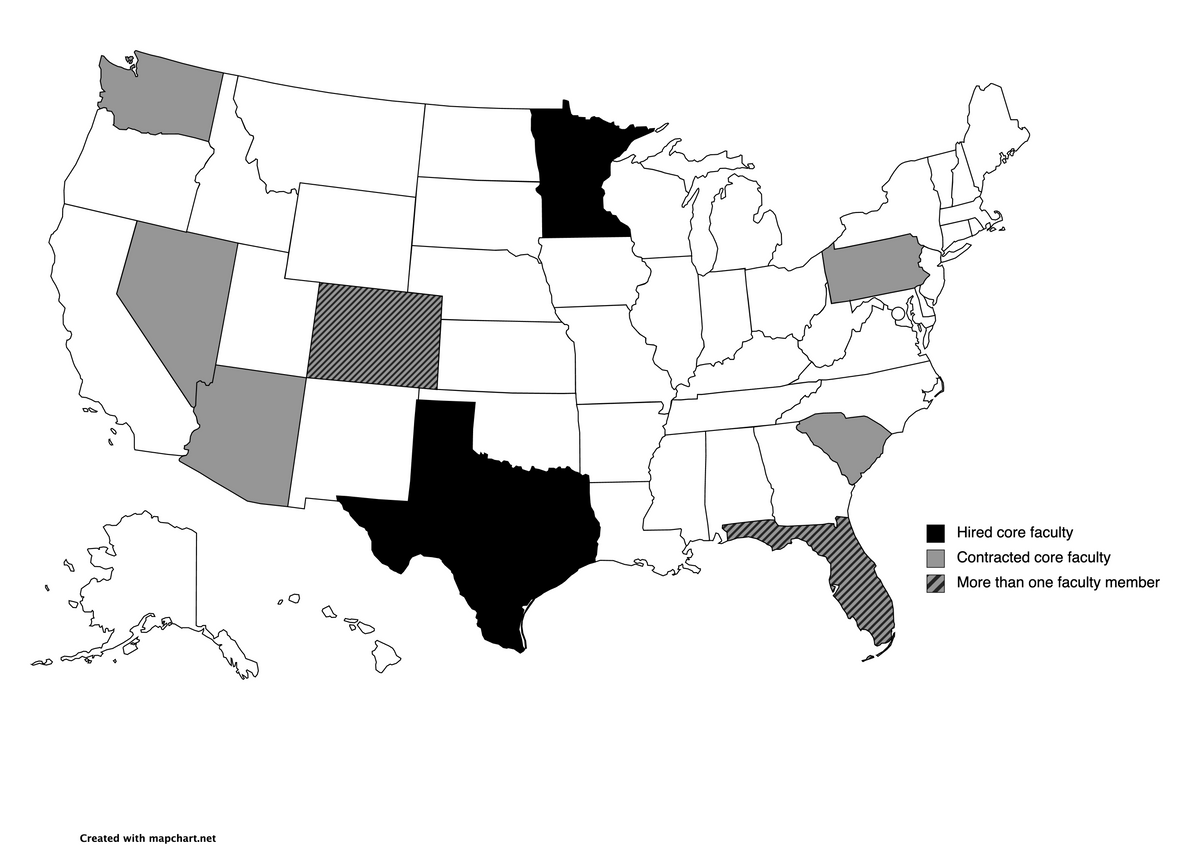DPT program classes to begin this summer with first graduating class expected in 2025

Students can graduate as soon as 2025 with a Doctorate of Physical Therapy, the first doctoral degree offered by Augustana.
The first students, 20 of whom have already accepted their admissions offers, will start hybrid classes and labs in June of 2023.
After approval by the higher learning commission and the Minnesota Board of Higher Education in 2019, the next step for the DPT program is national accreditation through the Commission on Accreditation in Physical Therapy Education, or CAPTE.
According to program director Matt Volansky, the current admissions goal is 100 students per class. The program hopes to reach that number with rolling admissions, so students have no deadlines but rather can apply at any time and start after their acceptance.
Five core faculty members are already on board, and another 13 are set to begin in 2023 when classes launch. Because the program is run primarily online, there are faculty members living in every US time zone across states like Florida, Colorado, Texas and Minnesota.
“My attraction to Augie was based in part on the faculty and the program model,” Keiba Shaw, director of student affairs for the program, said. “I knew I would be joining an experienced faculty that would put forth maximum effort to ensure to the best of their abilities the success of the program.”
The hybrid doctoral program will take two years to complete instead of the typical three or four, Volansky said. Each student will take four to five online classes per semester, with classes being primarily synchronous.
Every six to eight weeks, students will have to travel to the National Sports Center in Blaine, Minnesota for hands-on labs. These labs will run for five to 13 days at a time.
“That’s really where a lot of this great learning happens because students have the opportunity to repetitively practice to get feedback, to make the mistakes that contribute to learning,” Andrea Mierau, director of clinical education for the program, said.
Doctoral students will only have to be on Augustana’s campus twice according to Volansky: once for orientation and once for graduation. The purpose of the hybrid program is to encourage students to stay at home to study. The goal of this decision is so that students of the Upper Great Plains will stay in their rural areas to offer physical therapy healthcare to underserved communities.
“It shows that Augustana and its values can reach beyond just Sioux Falls, that we can be a part of this campus community, even from an online, hybrid, didactic program,” Mierau said.
Because this is an accelerated program, director of admissions Erika Nelson-Wong said students should expect to spend 40-50 hours per week on classes and homework.
“It’s not for the fainthearted,” director of curriculum Alexis Ortiz said. “We are putting all that education into two years, so we are talking about a very intensive curriculum that will be like a typical workday schedule.”
Students also will have to go on to residency and fellowship for additional specifications. Still, Mireau said she can connect students with programs in their preferred field for their last two clinical rotations.
Instead of focusing on these specializations, Nelson-Wong said they want to graduate strong general practice physical therapists. The curriculum model focuses on newer areas of physical therapy, like telehealth, robotics and AI systems.
“We as educators know that five or ten years from now, there are certain skill sets that a physical therapist is going to need to have,” Volansky said.
President Stephanie Herseth Sandlin said there will be room in the future to create “advanced pathways” with current undergraduate programs, like exercise science and athletic training. She said the school might reserve spots for Augustana undergraduates or offer them early admission.



